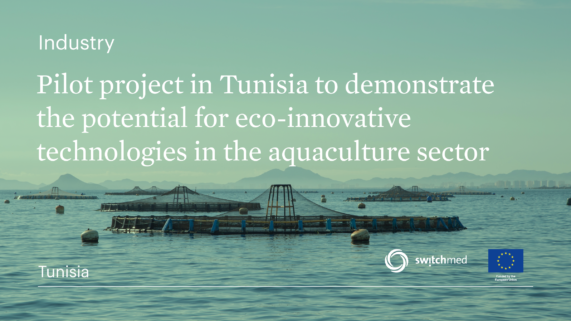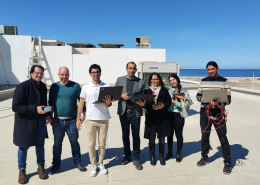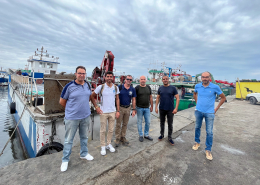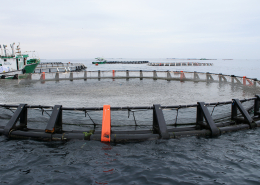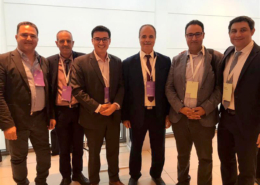On 27 September, the United Nations Industrial Development Organization (UNIDO) launched a pilot project in Monastir, Tunisia, for members of the aquaculture industry. Until the end of 2023, the pilot project will demonstrate the use of eco-innovative technologies under conditions applicable to Tunisia’s aquaculture sector.
According to the FAO, global aquaculture production increased from 1990 to 2018 by 527% and was in 2018 estimated to be 114,5 million tonnes. In Tunisia, aquaculture is also growing, currently producing about 23,000 tonnes per year, accounting for almost 18% of Tunisia’s total fish production. However, unsustainable practices in aquacultures can have serious environmental effects, such as the build-up of nutrients and effluents below the cages on the seafloor. The debris from aquacultures can lead to potential algal blooms, eutrophication and the depletion of oxygen near the cages, which can harm the marine ecosystems in the surroundings of aquaculture sites.
Under the EU-funded SwitchMed blue economy component, actions have been developed to advance sustainable consumption and production principles in some key “blue” economic sectors of the Mediterranean region. In Tunisia, UNIDO has undertaken a mapping study of the aquaculture value chain. While the industry shows good performance, the feed conversion rate standards remain too high compared to international benchmarks.
As a result, UNIDO, together with the Direction Generale de la peche et de l’aquaculture (DGPA) and a consortium of national and international experts, will demonstrate a selection of eco-innovative technologies that can optimize the feed conversion rate, improve fish feeding efficiency and the environmental performance in aquacultures. An aquaculture facility in Monastir Bay will demonstrate and assess the suitability of the selected technologies under production conditions applicable for aquacultures in Tunisia.
“The economic and environmental sustainability of the sector can be ensured by adopting innovative SMART systems based on sensor technology, switching to alternative feed sources and advanced feeding systems, integration of hatcheries and species diversification,” says Ms. Hanan Hanzaz, Head of the Arab Region Coordination Division and UNIDO Representative in Tunisia
The pilot project in Tunisia’s aquaculture sector will evaluate the applicability, effectiveness, and potential of combining technologies at an industrial scale under actual production conditions, in different maritime and weather conditions, also considering the development stages and growth periods of the fish. Additionally, field-training modules will be offered to staff from 25 aquaculture facilities, which will help to develop their skill-set in the demonstrated technologies, learning operations and maintenance at the demonstration hub.
According to Mr. Hechmi Missaoui, Director General at the Institute National des Sciences et Technologies de la Mer INSTM – “The SwitchMed Blue Economy initiative is an outstanding occasion for the Tunisian aquaculture industry to transition towards more sustainable practices, to become more resilient and competitive and I invite all national actors, institutions, R&D, business sector to seize this opportunity.”
The data, information and experience gathered from the demonstration pilot will, together with stakeholder consultations, flow into developing a blue economy roadmap that can provide policy recommendations and incentives to further the uptake for more sustainable aquafarming solutions in Tunisia and the Mediterranean region.
For more information on the blue economy pilot project in Tunisia, click here.

